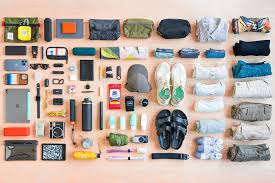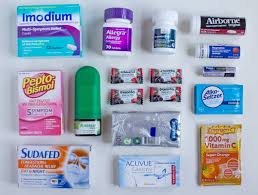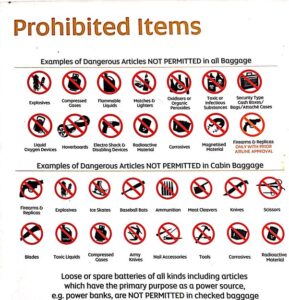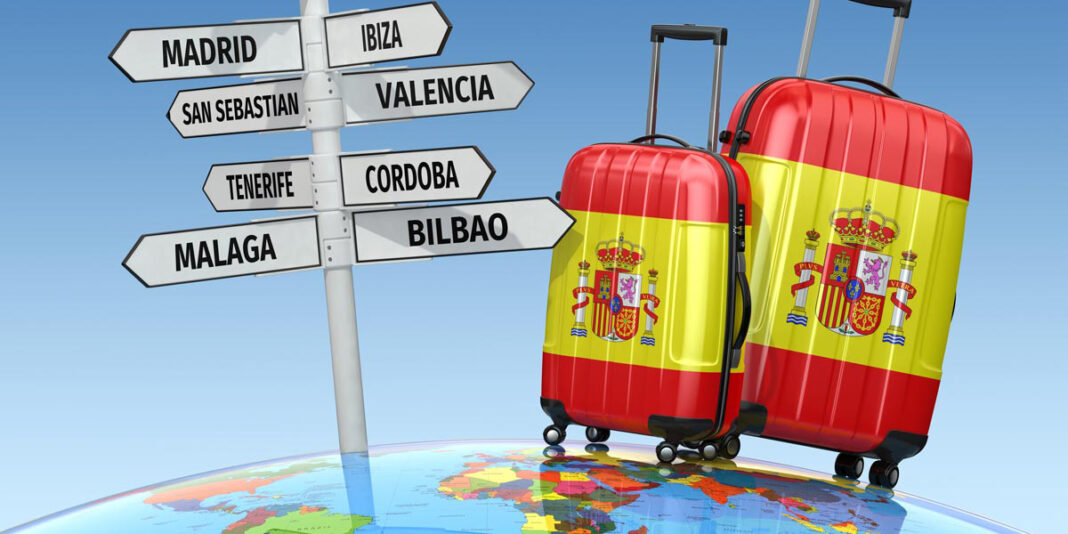Useful Tips For A Comfortable Trip To Spain:

Spain is one of the world’s largest centers of tourism and recreation. Few people know that after Switzerland, Spain is the highest-mountain country in Europe: mountains occupy 90% of its territory. Despite the fact that the Iberian Peninsula is almost completely surrounded by the sea, the country’s climate is determined not so much by the ocean as by the mountains that protect it from external influences. In Spain, the climate at different altitudes is very different: you can shiver from the cold, wrapped in a warm shawl high in the mountains, and watch how somewhere far below children splash in the warm waves of the gentle sea. Spain is multifaceted, each time it appears to you different, unexpected, but always excitingly interesting.
Why this wonderful country is called Spain, no one can say now, not even the Spaniards themselves. In ancient times, this land was inhabited by the Iberian tribes, after whom the entire peninsula was called Iberia from the middle of the first millennium BC. The Greeks called this country Hesperia – the Land of the Evening Star. After the division of the Roman Empire into Western and Eastern, the Western was officially called “Hesperia”. Since the 2nd century BC, that is, since the time of the Romans’ penetration into Spain, the country has been called “Hispania”. There are three languages in Spain: Spanish, Catalan and Basque.

If you are planning a vacation or holiday and cannot decide which country to go to with your family, then our advice to you is to choose Spain. Warm sea, clean beaches, most of which are marked with the Blue Flag (an international environmental award indicating that the beach and its infrastructure meet 32 criteria), delicious cuisine and unforgettable color – this is what awaits travelers in this amazing country.
Despite all the positive aspects of any trip, few people like to pack their suitcases. Sometimes inexperienced tourists do not know what exactly to take with them on the road. We has studied all the nuances of organizing a vacation in the “country of flamenco and bullfighting” and offers its readers a list of what is worth taking to Spain and what is absolutely forbidden to bring.
What to take to Spain: general recommendations:
What to take on holiday to Spain? This question is relevant for everyone who plans to spend a holiday in this sunny country. Depending on what kind of holiday you are planning, how many people are going and how old the members of your group are, the size and components of the luggage may differ, but a mandatory item in any trip is documents. We will talk about them first.
Documents for adults and children:

1. Visa.
In March 1995, Spain became one of the seven countries that established the Schengen Law of the European Union. Since then, border controls between all Schengen member states have been abolished. Spain is no exception. A visa is required to enter the country (unless there is a visa-free regime between your country and Spain).
2. Passport.
Continuing the list of documents that you need to take with you on a trip, we will clarify one more point. It concerns passports, both adults and children. First, check their expiration date before the trip. Second, if adults have biometric documents, children need to separately apply for passports for travel abroad. If the parents have old-style documents, then you can paste photos of the children into the passport of one of the parents.
3. Notarized consent.
Often children go on vacation with only one parent or with relatives. Before the trip, be sure to find out whether a special power of attorney is needed, in which one or both parents give their consent for their son or daughter to travel abroad.
4. Birth certificates .
Birth certificates of children are required when they and their parents have different surnames. In this case, this is the only document confirming the relationship.
5. Medical Insurance.

What tourists should definitely take with them to Spain from the documents is medical insurance. It’s good if you don’t need it, but in any case, it won’t be superfluous.
Don’t forget your driver’s license, registration certificate and “green card”. These documents are required if you are traveling in your own car.
And one more piece of advice: the world does not stand still, and every day various changes are made to the rules for crossing state borders. Therefore, before your trip, we recommend that you once again look at the website of the consulate of the country you are going to or google the Internet for up-to-date information on the requirements.
Clothing and footwear by season:

Spain is one of the hottest countries on the European continent. In summer, the air temperature in the center and south of the country often rises to +40 °C and above, and in the northern regions it is approximately +25 °C. Taking into account these climate features, we recommend what items to take with you on a summer trip: mothers and daughters should take dresses, sundresses, blouses and skirts, and fathers and sons should take T-shirts and shorts. It should also be noted that the scorching Spanish sun can cause a lot of trouble if you forget about a hat. Therefore, a hat or cap for an adult and a Panama hat for a child should definitely be in your luggage.
Spain is popular among tourists due to its stunning beaches. There are more than 2 thousand of them in the country. Vacationers often combine beach holidays with excursions – there are plenty of attractions here too. Therefore, we recommend taking only light and comfortable shoes without heels on your trip, in which you can take long walks along the picturesque streets of exotic Spanish cities.
In the warm season, you can’t do without swimming accessories at Spanish resorts:

- swimsuits and pareos for women;
- swimming trunks for men;
- beach slippers or flip-flops.
- Winter in Spain is often damp. Although there are no forty-degree frosts, warm clothes will still come in handy. If you are planning a holiday at this time of year, do not forget to take:
- raincoats (February is the rainiest month of the year);
- waterproof footwear;
- warm clothes (sweaters, trousers, etc.);
- jackets or coats.
In spring and autumn, or more precisely in March-April and October-November, it is low season in Spain. There are few tourists here, so if you like quiet and measured walks with visits to architectural sights, then this option is for you.
As for clothes, you will need:

- rain jackets and footwear according to the season;
- several sweatshirts or jumpers for adults and children;
- trousers or dresses with long sleeves.
What clothes to take with you to Spain and whether it is worth taking a lot of them is up to you. If your travel budget allows, we recommend visiting Spanish shopping centers, namely clothing stores. We are sure that the prices of the things you will see there will pleasantly surprise you and you will certainly want to buy yourself and your children some fashionable new clothes.
Useful little things:
Although Spain is part of the European Union and English is spoken everywhere, the official language of communication throughout the country is Spanish. Our advice: you should definitely take a phrasebook with you to Spain. It doesn’t take up much space, but its benefits are invaluable.
What to take for a child to Spain:

What to take for children to Spain is one of the most frequently asked questions when preparing for a trip to this country for families with children. The list of things for a child is sometimes longer than the list for parents. It often includes several sets of clothes and shoes, pajamas, hats and other items of children’s wardrobe, as well as numerous accessories. These include:
- stroller. Parents most often take strollers-canes on trips. They are easy to fold and do not take up much space;
- personal hygiene products (shampoo, soap, toothpaste and toothbrush); diapers or waterproof nappies;
- a few favorite toys or books. They will not only please the child away from home, but will also help to entertain children during a long flight;
- children’s dishes and cutlery;
- feeding bibs;
- slings, baby carriers, ergo backpacks and other types of carriers. This is what you should definitely take on vacation if your baby is still not confident in moving around on his own;
- A potty for a child is a separate topic. If your baby easily adapts to new conditions, then you don’t need this item. If the young traveler is used to his “accessory”, we recommend buying one of the compact potties shortly before the trip and accustoming the child to it. This will be easier for you and more familiar to the baby.
What medications to take to Spain:

When planning your trip, don’t forget to take your medications to Spain. Medicines brought in by foreign tourists for personal use are not subject to sanitary control.
However, there is one “but”: all tablets, sprays and syrups must be checked in. In hand luggage, you are allowed to carry a small amount of medicine that you need during the flight.
A first aid kit for a trip to Spain should consist of the following medications and accessories:
- enterosorbents that help the body get rid of toxic substances, pathogenic microbes and infections;
- antipyretics and painkillers. We will not name specific drugs, we advise all future tourists not to self-medicate and to visit their family doctors for detailed consultations;
- antihistamines that have an anti-allergic effect;

- probiotics that normalize intestinal microflora;
- insect bite remedies; anti-inflammatory throat sprays;
- hemostatic and disinfectant drugs; sunscreen with a protection factor of at least 30 units;
- mercury-free thermometer; antibacterial wipes and sprays.
We recommend buying medicines for a child on the road taking into account the recommendations of a pediatrician. This way you will not only help children at the right time, but also protect yourself and them from the occurrence of unexpected negative reactions associated with the use of unverified medical drugs.
The list of medications for the road for each child is individual, but there are still generally accepted standards, compiled on the basis of the opinions of competent doctors and many tourists who travel with children.
Please note that in EU member states, some components of medical preparations common in the CIS countries are considered narcotic substances.
What currency is best to take to Spain:

Considering that Spain is a member of the European Union, the question “What money to take to Spain?” does not arise. The official currency in this country is the euro. Local exchange offices accept currencies from many other countries around the world, but when converting money you may lose a certain amount. This is quite unpleasant, especially considering that the country is one of the shopping centers.
How much money to take is another question. It all depends on your needs. According to numerous reviews from tourists, you should plan at least 50-60 euros per day per adult. This does not include the cost of tickets, insurance, and hotel fees. On the other hand, Spanish customs regulations are quite strict. When crossing the state border, it is mandatory to declare cash, bank cards and electronic payment instruments in the amount exceeding 10 thousand euros.
What you can’t bring into Spain:

The customs regulations that govern the import of goods into Spain are based on two components: Spanish legislation and EU regulations, more specifically Directive 2007/74/EC. We have already clarified what can be imported into Spain.
To avoid any problems when going through customs control, remember the list of what you should not take to Spain to avoid problems with customs authorities:
- drugs and drug-containing medications;
- explosives, bladed weapons, firearms and ammunition;
- It is prohibited to import audio and video materials of a pornographic nature;
- flowers, plants and seeds, as well as products made from endangered plant species;
- You cannot take meat and dairy products to Spain. The only exception is powdered milk used to prepare baby food, but it must be in the original packaging;
- food products that do not contain meat or milk can be imported at a rate of no more than 1 kg per adult;
- It is prohibited to import medicines other than those intended for personal use.
